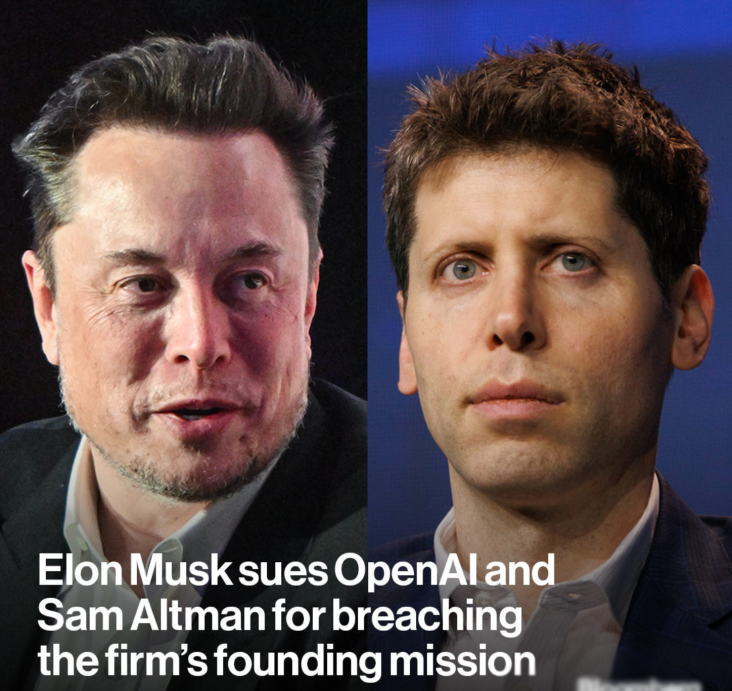Elon Musk, the renowned entrepreneur and advocate for responsible AI development, has taken legal action against OpenAI and its Chief Executive Officer, Sam Altman. Musk alleges that the artificial intelligence startup has strayed from its original mission of prioritizing the advancement of technology for the benefit of humanity, instead focusing on profit-driven agendas. This article explores the intricacies of the lawsuit, implications for both OpenAI and Microsoft, and the broader context of Musk’s concerns about the direction of AI development.
Musk’s Allegations
Musk’s lawsuit contends that OpenAI’s close association with Microsoft has led to a departure from its founding principles. Despite its initial commitment to open-source technology, the company’s alignment with corporate interests has raised doubts about its dedication to serving the greater good. Musk, a former co-founder of OpenAI, asserts that this shift undermines efforts to ensure that artificial general intelligence (AGI) is developed safely and ethically.
OpenAI’s Transformation
Initially envisioned as a nonprofit organization dedicated to advancing AI for public benefit, OpenAI’s collaboration with Microsoft has raised questions about its independence. The lawsuit highlights concerns that the company’s objectives have been compromised in pursuit of financial gain, particularly with the release of technologies like ChatGPT and GPT-4. These developments underscore the challenges of balancing innovation with ethical considerations in the AI industry.
Also: Elon Musk Unveils XMail, A Revolutionary Email Service to Challenge Gmail
Implications of the Lawsuit
The legal battle between Musk and OpenAI carries significant implications for the future of AI development. As OpenAI seeks substantial funding and partnerships, the lawsuit threatens to disrupt its trajectory and reputation. Furthermore, Microsoft’s involvement adds complexity to the situation, as the tech giant aims to position itself as a leader in AI adoption. The outcome of the lawsuit could shape industry practices and perceptions regarding responsible AI governance.


